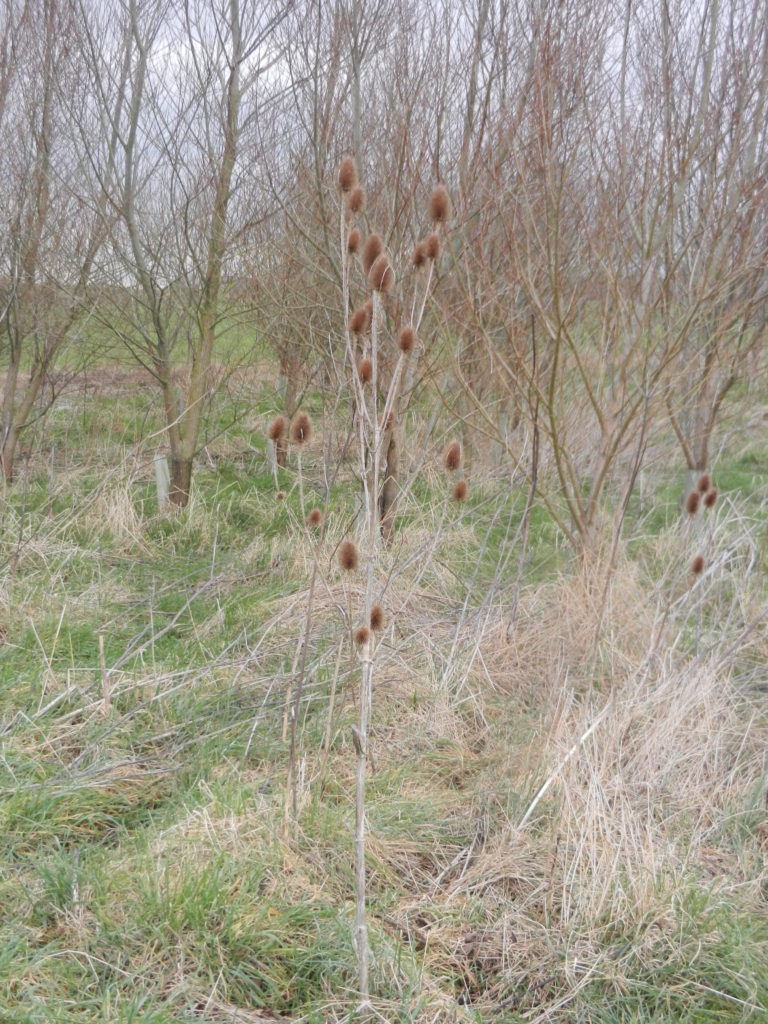
This photo shows a group of tall teasels in late winter with a plantation of young native trees behind (for the context see Atheism 1). Teasel is the name of the plant as well as the flower head/seed head, these in the past harvested for use in the woollen cloth making industry, these days more valued for floral decorations. The flower head is in fact lots of tiny flowers that develop from the base of the spines of the teasel. Whereas some flowers progressively flower from top to bottom of a flower stem, others flower from bottom to top (e.g. gladioli) but the teasels flowers from the middle (of the teasel) upwards and downwards at the same rate. Teasels can sometimes be confused with thistles but they are different species. Most types of thistle that grow wild in Britain have spines evolved to protect them from all but the toughest of grazing animals. The most aptly named variety is the spear thistle which is now classed as a pernicious weed in the U.S.A. However, the flower of the spear thistle, which sits at the top of an erect stem, is purple and fluffy and beloved of bees and pollinating insects as it is still in flower in autumn.
As my final statement on this short run I have concluded that it is Nature, evolution and the forces directing the Universe that comprise the most convincing belief structure. There is no need of some human person, functioning at some point in the past, and claiming divine status to give life (human life) meaning. We worship by admiring and respecting the natural features of the planet, we need no formal form of worship and our place of worship is all around. Although I am not an expert in comparative religions, I’m fairly sure that some Eastern religions and belief structures think similarly. The native tribes of the Great Plains of North America (Indians) believed that all living things, from a blade of grass to their chieftain, had a soul and that all living things should live in harmony and mutual respect. So if there is any form of afterlife for souls at least there will be diversity of lifeforms there.
Charles Darwin (s.p.b.) was a lifelong member of a Church of England congregation but later in life, faced with the contradictions of reconciling is ideas on evolution with Biblical text, started to not attend Sunday worship so often.
This is not atheism.